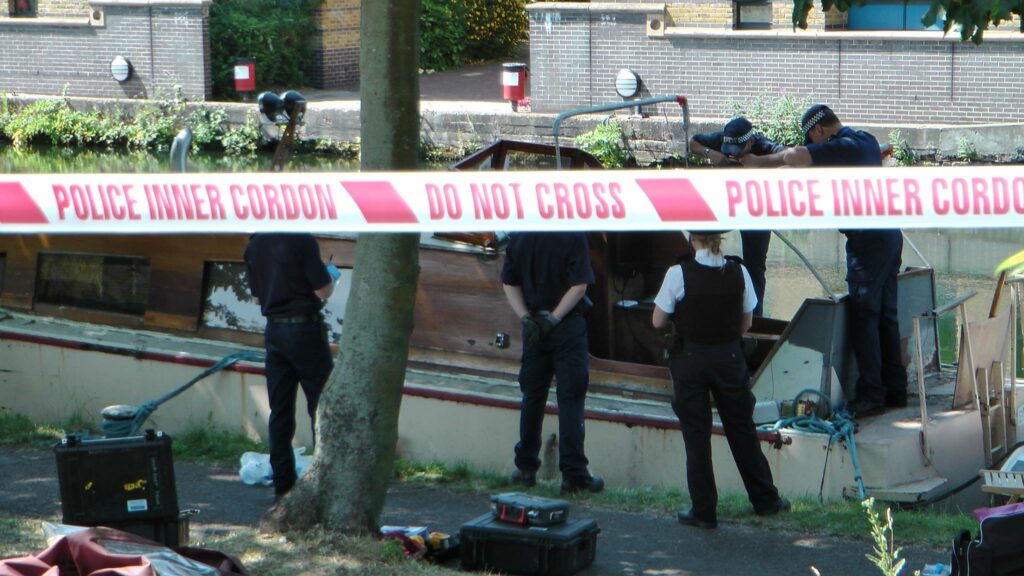
Ten years ago, I posted photos of a police raid on a boat in Mile End Park to a local Facebook group. What followed was a storm of critique from fellow community members, particularly around privacy, ethics, and the nature of local news. That exchange came back through the memory algorithm on #failbook, it’s interesting because it sits at the heart of a question we keep coming back to. What is journalism, and where does it belong? The debate wasn’t just about a photo or a post. It was about the role of information in shared spaces, and the tensions between community care and the need for a clear, public record. Some key lessons I’ve drawn from that time:
- Good community needs good information. Silence and rumour leave space for gossip, fear, and abuse. Visual storytelling, when done well, can be part of an antidote.
- But journalism is not neutral. It requires ethics, context, and responsibility. Publishing a photo of someone’s home under police scrutiny, even if taken in public, isn’t just about facts, it’s about the emotional and social consequences.
- Community groups aren’t newspapers. They’re often treated as such, but they don’t have the editorial process, protections, or purpose of basic media flows. This makes them fragile spaces, especially in conflict. They blur the line between personal and public.
- #Dotcons social media is already a news platform. Like it or not, #Facebook become a place where people get most of their information, discuss local events, and form opinions. Pretending it isn’t is naive, but using it without thinking is dangerous.
- There’s a memory hole problem. Local journalism, when left to #dotcons social media or more #traditionalmedia, is temporary, shallow, and hard to archive. And when community moderators remove posts under pressure, that history is lost. The next generation then repeats the same debates.
In hindsight, It is important to do basic, grassroots journalism rooted in the #4opens with transparency, open data, open process, open standards. But as you can see from the #failbook thread – without shared understanding of what journalism is and why it matters, such interventions can and do feel more like intrusion than contribution.
The challenge ahead is to build new forms of sustainable open, ethical journalism, ones that hold truth and care in tension, not in opposition. And that means creating bridges between community media and professional media, activists and residents, openness and protection. We can’t just say, “don’t post.” We have to build better ways of witnessing together.